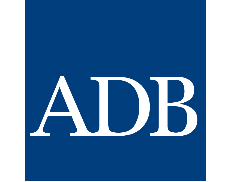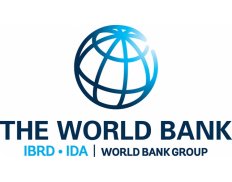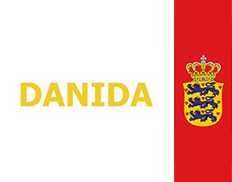| |
|
A. Background
The Community-Managed Irrigated Agriculture Sector Project (CMIASP) was approved by ADB on 17 November
2004, became effective on 13 January 2006, and closed on 30 September 2014. CMIASP had the overall goal
of promoting inclusive economic growth while reducing poverty in rural areas. Its specific objective was
to improve agriculture productivity and sustainability of existing medium-sized farmer-managed
irrigation systems (FMIS) and thereby enhance the livelihood of poor men and women including ethnic
minorities and Dalit. To achieve this objective, CMIASP rehabilitated 111 FMIS, with strengthened water
users’ associations (WUAs) to independently manage their irrigation systems, in the Central and Eastern
Development regions. Agricultural extension and livelihood enhancement services were also part of
project component.
In order to continue supporting farmers in rehabilitation and management of FMIS after the completion of
CMIASP, ADB on 10 April 2014 approved an additional financing in the project which is named CMIASP-AF
(“the AF” or “the Project”). The AF became effective on 3 June 2014. Physical completion date of AF is
31 January 2021 and project completion on 31 July 2021. AF will continue to achieve the goal and
objective of CMIASP to rehabilitate and extend the irrigation coverage of farmer-managed irrigation
systems in the eastern and central development regions, and strengthen WUA capacity to properly operate
and maintain their systems. AF will also support the rehabilitation of select irrigation systems that
are currently managed by government agency (AMIS), and transfer their management to the WUAs after
system rehabilitation. The project aims to implement about 155 community-based subprojects (150 FMIS and
5 AMIS).
The project impact will be increased national food security. The expected outcome will be that
participating farmers increase agricultural production measured through (i) yields of major crops
increased by at least 30% in subproject areas, and (ii) cropping intensity in irrigated areas increased
by at least 30% in terai subprojects and 45% in hill subprojects.
To achieve its expected outcome, the Project has the following four outputs:
(i) Farmers in subproject areas have improved irrigation infrastructure. The project will support the
participatory planning, detailed design, and construction of infrastructure such as diversion
structures, cross-drainage works, improved and extended canal systems, and flood protection facilities.
All subproject infrastructure design will be done in close consultation with WUAs. The project will also
support the construction of tertiary water courses that bring the water to farm fields. WUAs will
provide beneficiary contribution in labor and/or cash for subproject infrastructure costs, consistent
with the government’s irrigation policy (2013).
(ii) WUAs independently manage irrigation systems in a socially inclusive and equitable manner. The
project will empower WUAs to manage the rehabilitation of the infrastructure, operate and maintain their
systems without government support, and distribute the water equitably and adequately throughout the
command area. WUA executive committees will be reconstituted, as necessary, to ensure equal
representation of the head, middle, and tail of the canal system, and to empower women and other
disadvantaged farmers to lead in system management. WUAs in subprojects that are currently agency-
managed will develop plans to manage their systems without government support. In this context, 5
currently ongoing agency managed irrigation systems will also be rehabilitated and O&M of the system
will be transferred to WUAs after their strengthening.
(iii) Farmers adopt improved agricultural practices. Currently, agricultural practices in subproject
areas are predominantly conventional. Farmers are using their own seed stock repeatedly for 5–10 years,
resulting in lost production potential. Chemical fertilizer use is unbalanced, and farmers are not well
trained in making organic fertilizers. Inefficient plot-to-plot flooding irrigation is regularly
practiced rather than constructing field channels. The project will provide agricultural extension
services to subproject areas to build the capacity of farmers in sustainable agricultural systems.
(iv) National institutions are strengthened for effective irrigation service delivery. The project has
already supported the preparation of policies for irrigation and integrated water resources management,
a national water plan, improved procedures for project management, revised engineering manuals, and
institutional strategy and action plans. The next phase of policy and institutional reforms will be
supported through additional financing, including preparation of an irrigation act, updating the
irrigation regulation, and preparing guidelines for management transfer and O&M.
(v) The Project Executing Agency (EA) is the Department of Irrigation (DOI) of the Ministry of
Irrigation and its Central Project Management Office (CPMO). Irrigation Development
Division/Subdivisions in the central and eastern development regions are the Implementing Agency (IA)
for implementing structure rehabilitation works. DOI and CPMO are responsible to manage project
planning, implementation, and monitoring and evaluation; ensure strong coordination and dialogue between
DOI and DOA stakeholders; manage the contract of project implementation and management support (PIMS)
consultant; monitor and report on both physical and financial progress, prepare and update detailed
project work plan and budget, implement training programs for project staff, give its “no objection” on
detailed design reports with cost estimates and bid evaluation report for civil works, and manage an
imprest account, fund flow, and loan disbursement.
(vi) Department of Agriculture and its Directorate of Agriculture Extension with a Project
Implementation Unit (PIU/DOA) will be the second IA. The PIU is responsible for planning and supervision
of the agricultural development and integrated crop and water management (ICWM) components; prepare work
plan and budget for agricultural development and ICWM components; train DOA staff in implementing the
agricultural development and ICWM in subproject areas; monitor, evaluate and report on the effectiveness
of the agricultural development and ICWM components.
(vii) The project is planned to be supported by a Project Implementation and Management Support
consultant (PIMS). The PIMS package will have a total of 1,146 person-months input of consultants
through a national consulting firm; and 25 person-months input of international Team Leader/Irrigation
Engineer (TL) as individual consultant who will supervise and guide the overall PIMS delivery in close
collaboration and coordination with the PIMS Deputy Team Leader (DTL).
B. Objective of Consultant Services
The objective of the consultant services is to assist the EA and the IAs in project management. The PIMS
and the international TL in close coordination with the DTL will provide advice, assistance and training
to project related institutions regarding all aspects of implementation so that the project achieves its
intended outcome and output targets. The specific objectives of the consultancy service is to
(a) Support subproject implementation following agreed procedures and arrangements, and propose further
improvements if needed;
(b) Capacity building and strengthening of directly concerned institutions including central line
departments, local government institutions and water user associations (WUAs); and
(c) Project management through monitoring and quality control of both institutional processes and
technical works for irrigation infrastructure and agriculture development.
 |
















 Required
Required Desired
Desired
